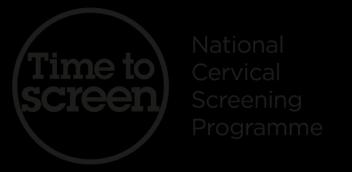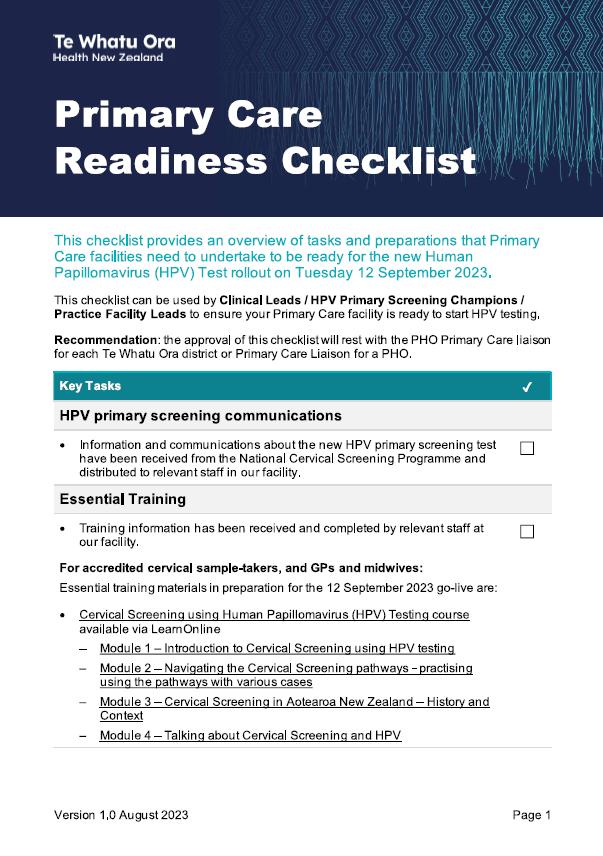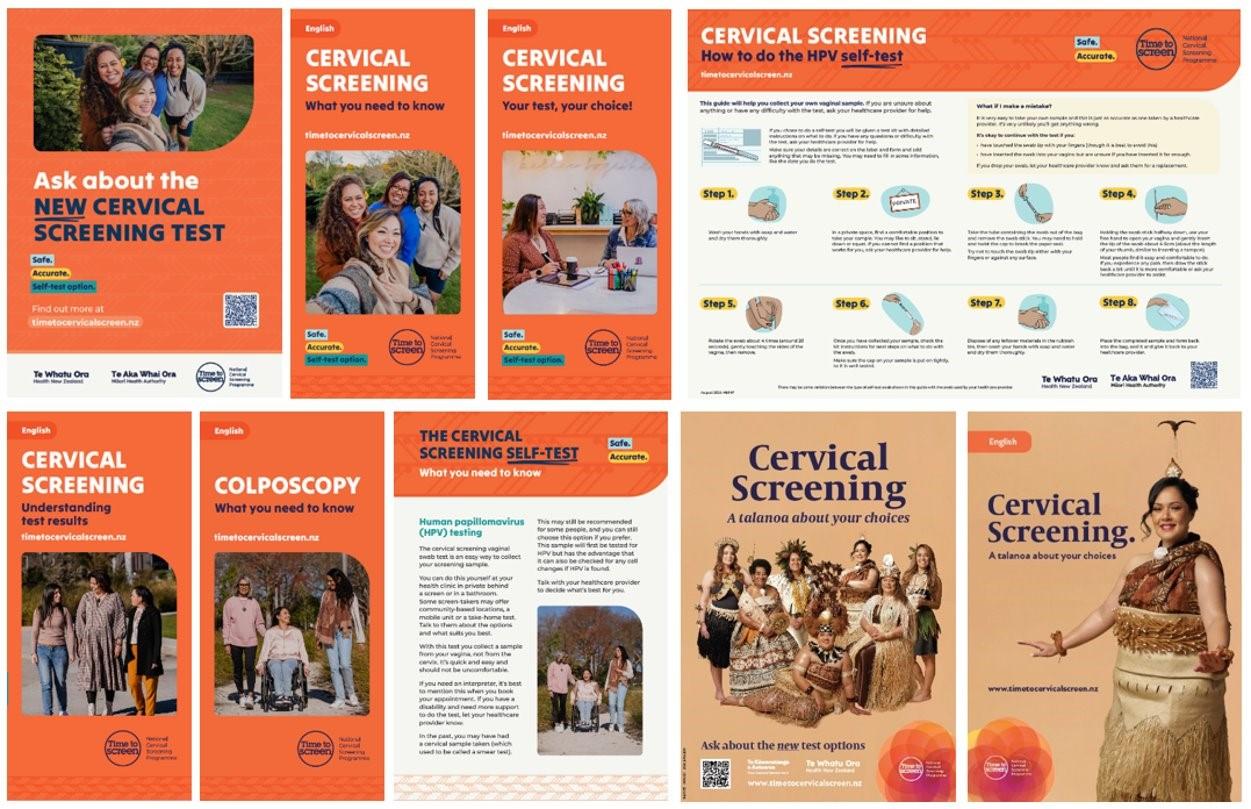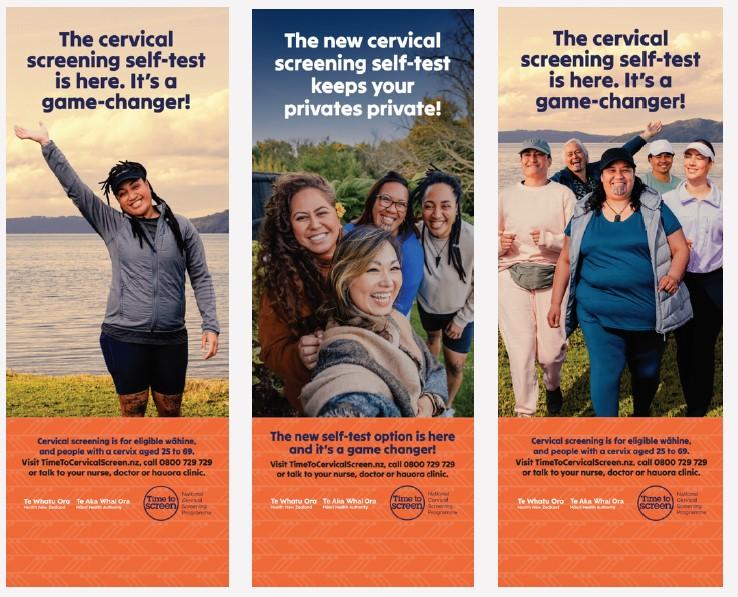HPV PRIMARY SCREENING Pack 3: Getting Ready for ‘Go Live’









You will receive information in five main steps:
What to expect and when 12 July 2023
An updated overview and timeline of the journey to golive for the new HPV test.
Your role - what you need to know and do
week of 24 July
Guide to upcoming changes
week of 14 August
Pre Go-live check



week of 28 August
Check-in, next steps
week of 25 September
Tailored information about training and changes to your role in HPV primary screening.

Information to help you get ready for the 12 September 2023 ‘go live’.
Feeling ready for the new Clinical Pathways and supporting participants through the new process.
Successful implementation check-in to making sure you have everything you need for next steps.
The timeline shows the revised dates for go-live of HPV Primary Screening
Education & Training
Available now:
• Clinical Guidelines
• Cervical Screening Using HPV course
• Goodfellow Webinar
• Overview of HPV Primary Screening video
GP23 Conference Auckland
Clinical Training Module 4
Communications

Clinical Training Module 3
Support sessions with Whakarongorau – design processes and guides



Interim NCSP Policies & Standards 1,2, 3, 5, and 6 update
Laboratory consumables to order, date TBC by the Labs
Pack 1: What to expect & when
Pack 2: Your role and what you need to know and do
Kanohi ki te kanohi for Regional Coordinators and Support to Screen
Whaihua online training available Register online training available
Clinical Guidelines training for Regional Coordinators and Whakarongorau
Order consumer resources from HealthEd.govt.nz 12 Sep

Pack 2B: Guide to upcoming changes
Pre go-live online drop in sessions
Post go-live online drop in sessions
Pack 3: Pre Go-live check-in
Launch: GO-LIVE
(new launch date 12 Sep)
Pack 4: Check-in & next steps
➢ Complete the Clinical modules
➢ View and understand New Clinical Guidelines
➢ View and understand Interim Policies and Standards
➢ Understand Eligibility and What’s Funded
➢ Order participant resources
➢ Know where to find
‘Go Live’ information
➢ Know where to find
➢ Watch Overview of HPV Primary Screening

➢ Consider undertaking the Clinical modules


➢ View New Clinical Guidelines
➢ View Interim Policies and Standards
➢ Understand Eligibility and What’s Funded
➢ Order participant resources
➢ Know where to find
National Cervical Screening Programme

‘Go Live’ information
➢ View Interim Policies and Standards
➢ Understand Eligibility and What’s Funded
➢ Order participant resources
➢ Know where to find
‘Go Live’ information
➢ Know where to find
‘Go Live’ support
➢ Explore Pack 1
➢ Explore Pack 2
➢ Explore Pack 2B
➢ Remind staff to complete the Clinical modules (as required)
➢ View New Clinical Guidelines
➢ View Interim Policies and Standards
➢ Understand Eligibility and What’s Funded
➢ Order participant resources
➢ Know where to find ‘Go Live’ information
➢ Remind staff to complete the Clinical modules (as required)
➢ View New Clinical Guidelines
➢ View Interim Policies and Standards
➢ Understand Eligibility and What’s Funded
➢ Order participant resources
➢ Know where to find ‘Go Live’ information
➢ Remind staff to complete the Clinical modules (as required)
➢ View New Clinical Guidelines
➢ View Interim Policies and Standards
➢ Understand Eligibility and What’s Funded
➢ Order participant resources
➢ Know where to find
‘Go Live’ information
➢ Remind staff to complete the Clinical modules (as required)
➢ View New Clinical Guidelines

➢ View Interim Policies and Standards

➢ Understand Eligibility and What’s Funded
➢ Order participant resources

➢ Know where to find
‘Go Live’ information
‘Go Live’ support
➢ Explore Pack 1
➢ Explore Pack 2
➢ Explore Pack 2B
➢ Know where to find
‘Go Live’ support
➢ Explore Pack 1
➢ Explore Pack 2
➢ Explore Pack 2B
➢ Know where to find ‘Go Live’ support
➢ Explore Pack 1
➢ Explore Pack 2
➢ Explore Pack 2B
➢ Know where to find
‘Go Live’ support
➢ Explore Pack 1
➢ Explore Pack 2
➢ Explore Pack 2B
➢ Know where to find
‘Go Live’ support
➢ Explore Pack 1
➢ Explore Pack 2
➢ Explore Pack 2B
➢ Know where to find
‘Go Live’ support
➢ Explore Pack 1
➢ Explore Pack 2
➢ Explore Pack 2B



A pilot research study involving 17 practices from the Canterbury, Wellington and Whanganui regions has helped to shed light on critical areas that need attention in the change to HPV Primary Screening.
Many screening participants do not understand HPV screening including how persisting or re-activated virus can cause cervical cancer. Feedback from screen-taker conversations has highlighted the need for a wellinformed public education campaign to provide patients with accurate and helpful information.
It took time for screen-takers to get familiarity with how to explain screening and follow up tests. Having a patient information pamphlet that could be shared with patients was helpful, as was a patient information video. The Learn Online modules developed as part of the clinical education package contain exemplar conversations which many screentakers have reported as helpful especially seeing how others provide information and address issues that patients raise.
The pilot identified practice records did not always contain the participant’s full history and the availability of the PHO data match report information proved invaluable. This information will be sent to PHOs within the new programme from 20 October 2023.
One important seemingly minor issue highlighted in the pilot was the need to pay strict attention to careful labelling of samples as any error could
result in samples not being processed at the lab and participants requiring repeat tests.
A challenging aspect of HPV Primary Screening is being certain about the choices available to the participant. While most participants choose HPV self-testing, some histories indicate that a cervical sample is the more appropriate test. Screen-takers found themselves checking and verifying the appropriate test until they gained familiarity with the guidelines.
HealthPathways have now been updated and will make this easier.
Advising patients choosing HPV self-testing that there is a chance they may need to return got further testing for a HPV Detected result helps to minimise reluctance to attend for follow up.
Difficulties in navigating the pathway resulted in a few examples of incorrect advice being given in the pilot and highlighted the extra time and practice resources needed to make corrections. Confidence from completing the educational modules and access to HealthPathways will help but access to advice is also important and will be part of the HPV Primary Screening programme.
Finally, an important outcome from the pilot was that the HPV primary test proved acceptable and accessible to participants resulting in increased participation including for Maori and Pacific peoples.




Click on the images below to download and print readiness checklists to help you prepare for the ‘go live’ of NCSP HPV Primary Screening on 12 September 2023.






Participant resources|Click on image to order







World Health Organization guidelines recommend more frequent HPV screening for participants who are immune deficient. Please ensure you are aware of, and following, Section 13 of the Clinical Practice Guidelines.

Participants who are immune deficient and have an ‘HPV not detected’ test result should be screened every 3 years with an HPV test.
Participants with any kind of ‘HPV detected’ should be referred to colposcopy, where possible informed by the result of a liquid based cytology test.
As we count down to the go-live for HPV Primary Screening on 12 September 2023, we are aware that laboratory reporting for cervical cytology testing is taking up to two weeks longer than usual.
This is an impact related to the change to the go-live date for HPV Primary Screening to 12 September. Laboratories had already adjusted capacity for the reduction in cytology volumes anticipated for August and September.
Reduced laboratory capacity for cytology testing means it is possible there may be a temporary delay in normal reporting times of up to 2 weeks. This situation will be temporary and should be resolved soon after HPV Primary Screening ‘goes live’ on 12 September 2023. Lab staff are working hard to minimise any potential disruptions. They— and we— thank you for your patience and understanding.
The HPV Primary Screening communications campaign will be an important tool to help participants, and potential participants, understand their new screening options. The initial campaign will be designed to reach higher risk groups, including Māori and Pacific peoples, as well as anyone who is un- or under-screened, the Rainbow community, and those living with disabilities.
Activities will build gradually from midSeptember to end-December so providers don’t become overwhelmed by demand.
A co-design approach has been used to development advertising and resource materials. Co-designers include our Māori and Pacific Advisory Groups. We also sought out diverse perspectives through a range of focus groups throughout New Zealand.
You can view, download, and order participant resources free from: www.healthed.govt.nz
Registered Nurses, Nurse Practitioners and Enrolled Nurses who have completed NZQA training in cervical screening as well as Doctors and Midwives



• At this stage, only Cervical Sample-Takers able to undertake cervical screening prior to 12 September 2023 will be able to offer the HPV test, including the self-test.
• Think about time you may want to set aside to learn about the upcoming changes to the NCSP.
• Practices using a Practice Management System (PMS) should look for release notes and user guides from their PMS vendor regarding updates.
• The new lab request form is included in PMS changes; if hard copy lab forms are used please order before 12 September 2023.
• The new pathway requires changes to processes, time allocation, and sample handling procedures that you may want to discuss with colleagues.
➢ Informed consent and clinical consultation are required for participants before self-test kits can be provided.
➢ Participant resources are available to aide this discussion
➢ A self-test will not be clinically appropriate for all participants.
➢ Practices using a Practice Management System (PMS) should look for release notes and user guides from their PMS vendor regarding updates.

➢ The new lab request form is included in PMS changes or can be downloaded here:
➢ Vaginal swab sample lab form
➢ Cytology and histology lab form
➢ Share information about HPV Primary Screening and informed consent using participant resources.
Registered Nurses, Nurse Practitioners, and Enrolled Nurses who have not completed NZQA training in cervical screening


• At this stage, only Cervical Sample-Takers able to undertake cervical screening prior to 12 September 2023 will be able to offer the HPV test, including the self-test.
• Think about time you may want to set aside to learn about the upcoming changes to the NCSP.
• Practices using a PMS should look for release notes and user guides from their PMS vendor regarding updates.
• The new lab request form is included in PMS changes.
• The new pathway requires changes to processes, time allocation, and sample handling procedures that you may want to discuss with colleagues.

➢ Informed consent and clinical consultation are required for participants before self-test kits can be provided.
➢ Participant resources are available to aide this discussion
➢ A self-test will not be clinically appropriate for all participants.
➢ Practices using a Practice Management System (PMS) should look for release notes and user guides from their PMS vendor regarding updates.

➢ The new lab request form is included in PMS changes or can be downloaded here:
➢ Vaginal swab sample lab form
➢ Cytology and histology lab form
➢ Share / discuss using participant resources

• Participants calling to request a ‘smear test’ should be informed of new options available.
• Informed consent and clinical consultation are required for participants before self-test kits can be provided.
• Practices using a Practice Management System (PMS) should look for release notes and user guides from their PMS vendor regarding updates.
• The new pathway requires changes to processes, time allocation, and sample handling procedures that you may want to discuss with colleagues.

• Review all funding communications from the NSU.
• Think about time you may want to set aside to learn about the upcoming changes to the NCSP.

• No new essential training is required for Administrators but we do recommend the review of the resources and materials listed in the column to the right.
➢ Informed consent and clinical consultation are required for participants before self-test kits can be provided.
➢ Make sure participant resources are available to aide this discussion
➢ A self-test will not be clinically appropriate for all participants.
➢ Practices using a Practice Management System (PMS) should look for release notes and user guides from their PMS vendor regarding updates.

➢ The new lab request form is included in PMS changes or can be downloaded here:
➢ Vaginal swab sample lab form
➢ Cytology and histology lab form


Who: Experts in the programme, Clinical Practice Guidelines, and local relationships

How: Sector facing (0800 90 70 90), national and regional email addresses
Access: Register users
Scenarios outlined:
• Level 1 support
• Screening history queries
• Update to medical information
• Complex clinical queries
Who: Health practitioners and experts in the programme
How: Escalation only from regional services and consultation for RCT. Provide clinical consultation - ‘ask an expert’
Access: None required
Who: Whakarongorau Aotearoa. Experts in the Register, Clinical Practice Guidelines, and relationships.

How: Quality management with sector and regions (0800 50 60 50) plus tasks, emails, reports
Access: Register users
NSU
Who: Experts and decision makers in programme. Final point of escalation.
How: By exception only, by email for everything except major incidents.

Who: Contact centre trained and supported with FAQs

How: Sector facing phone number
Access: Portal users
Who: Existing team in Te Whatu Ora.
How: Phone number or email escalation for P1/P2 incidents
Access: Not required
NSU
Who: Experts and decision-makers in programme
How: Email, informed for all P1 / P2





